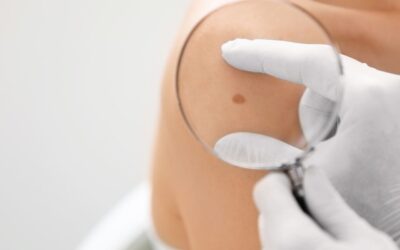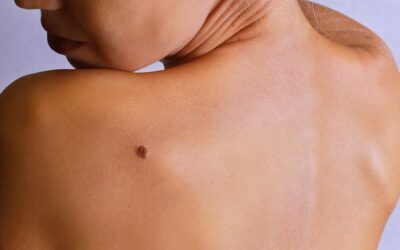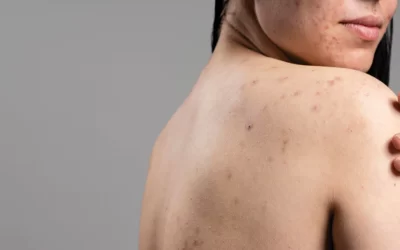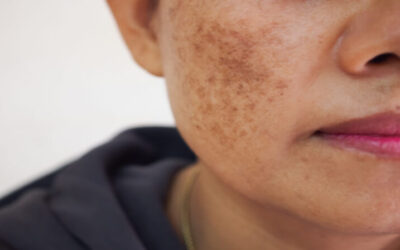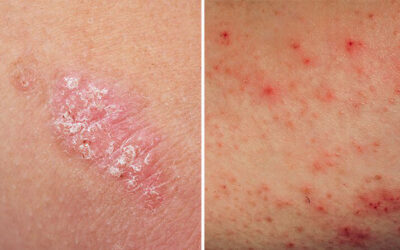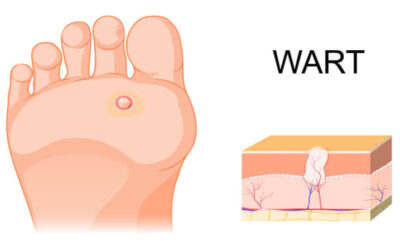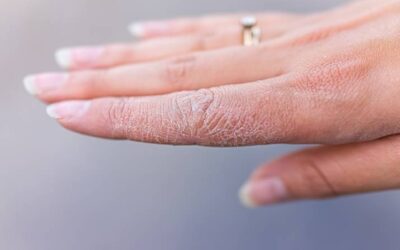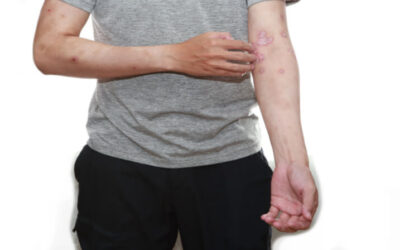When pimples are plucked or popped, they can leave indented scars on your skin.
These scars go all the way down to the dermal layer of the skin, sometimes even further. Some ice-pick scars may require numerous sessions or a mix of therapy to be successfully treated.
A few options for minimizing the visual impact of ice pick scars are explored in this article. We also discuss the causes of ice pick scars and how to avoid them.
What are Ice-Pick Scars
For many people, the healing process of acne leaves them susceptible to ice-pick scars.
As they go further into the skin, the indentations get smaller and more angular, giving the appearance of a point.
Depending on how the skin heals, they may be smaller or larger than the original acne lesion that created them.
One of the most difficult types of acne scars to heal are ice-pick scars, which are more common in parts of the face with thinner skin, such as the forehead and upper cheek.
What Causes Ice-Pick Scars
The growth of ice-pick scars, like all acne scars, is mostly dependent on the healing process of your skin. It is more likely that you will get acne scars if you have a history of scarring. Ice-pick scars can be caused by a number of different things.
- Inflammation. Acne scars are a result of a combination of factors. Acne scarring is more likely to occur if the inflammation from the lesion extends deeper into the skin. As a result, it is critical to treat acne as soon as possible in order to minimize the chance of having deep inflammation.
- Squeezing or picking at acne. You should avoid picking or squeezing your acne because it can cause further damage to the skin and increase the likelihood of scarring.
- Smoking. It is also more probable that you will get acne scars if you are a smoker because smoking increases the likelihood that scars will form.
- Pore Blockage. Acne can become inflammatory and infected with germs if the pores are severely clogged. As the pimple heals, the skin loses its ability to regenerate.
Collagen and other proteins may not be able to repair the damage caused by a deep pimple because of a lack of production which creates an indentation.
In order to keep your skin as healthy as possible, Skin Specialists will work together with you to devise a customized preventative plan. You may visit any of our locations in Texas.
How To Get Rid Of Ice-Pick Scars

Acne scars are difficult to treat, but they can be successfully treated if you’re patient. Topical creams, whether over-the-counter or prescribed, will not improve the appearance of pitted acne scars.
Here are some treatments that will help you get rid of ice-pick scars:
Punch excision
A circular tool is utilized to remove the scar from the skin in this method. A new, flat scar replaces the ice-pick scar once the incision has been stitched.
Punch grafting
This procedure involves filling the area with skin from another region of the body, such as the back of the ear.
Radiofrequency therapy
Radiofrequency, a treatment that tightens the skin, is a novel treatment for acne scars. As the skin contracts, it stretches, reducing the visibility of deep scars.
In order to get the best benefits, you’ll need to do this procedure more than once. Ice pick scars, on the other hand, seem to respond well to it.
Microneedling
Collagen induction therapy is a common name for this procedure. A specific tool is used to produce a series of little wounds within a scar. Within two days, these wounds are normally healed and new collagen is generated within the scar. Helps give our skin firmness and flexibility by providing the protein collagen. The depth of the scar diminishes when new collagen forms. To get the most out of treatment, it is common to have it every four to six weeks.
Chemical Peels
High doses of glycolic acid or salicylic acid are used to exfoliate the skin’s outer layers in this procedure.
This treatment is not recommended for scars that are more than a few millimeters deep since it can cause skin discoloration and texture abnormalities.
Accutane
Rather than removing scars, Accutane helps clear outbreaks that could cause more scarring and prevent them in the future from happening again.
There is no one-size-fits-all Accutane treatment plan. On average, it takes between four and five months to complete the course.
How To Prevent Ice-Pick Scars
Treating the inflammatory acne that leads to ice pick scars is the best method to avoid getting them. Avoiding scarring is a good first step.
- Maintaining a good skincare routine is essential.
- Talk to your doctor about the breakouts you’ve been having. You can contact any of our Skin Cancer Specialists in Sugar Land, Conroe, Katy, and Memorial, Texas.
- To prevent further breakouts, it’s best to refrain from scratching or popping pimples when you’re experiencing one. There is a risk of infection and worsening of existing outbreaks.
The Best Approach
Deep acne scarring is common, and you’re not the only one. Fortunately, you don’t have to endure it.
Talk to your doctor about any concerns or acne services you need. Professionals at Skin Cancer Specialist in Sugar Land, Conroe, Katy, and Memorial, Texas will help you deal with your scars.



